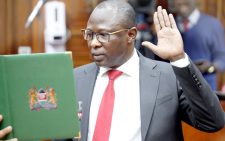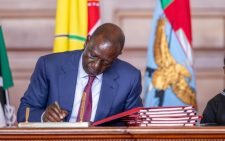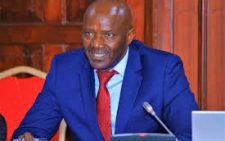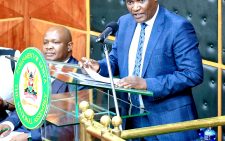Parliament asks court to dismiss orders barring vetting of IEBC nominees
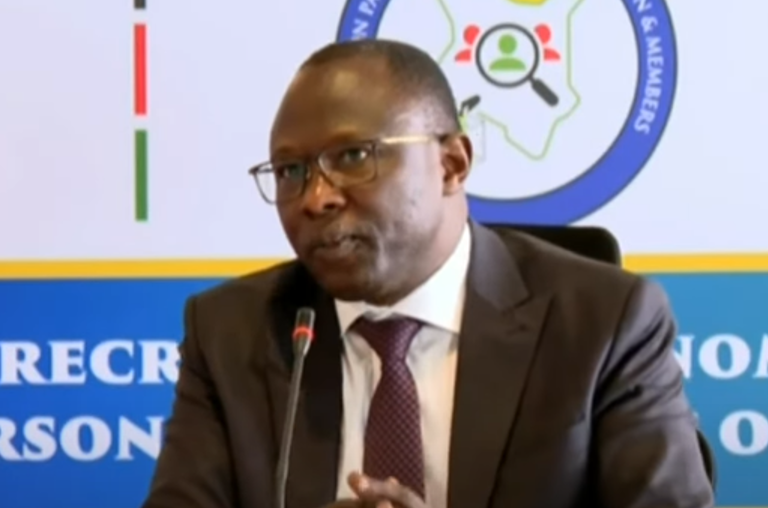
The National Assembly has urged the Nairobi High Court to allow the August House to proceed with the vetting of the proposed Independent Electoral and Boundaries Commission (IEBC) nominees.
In a replying affidavit to the temporary orders issued by Justice Lawrence Mugambi stopping the Parliament from vetting the nominees until May 29, 2025, Parliament urges the court to let the process of vetting go on without any interruptions.
Through the Deputy Clerk Jeremiah Ndombi, Parliament asserts that the reconstitution of the IEBC is urgent, and the vetting committee is expected to start the process very fast.
“I should point out that the Committee on Justice and Legal Affairs is expected to consider the nominees within twenty-eight (28) days and submit its final report to the House for approval by May 27, 2025,” part of the affidavit read.
Further, Ndombi states that the petitioners neither demonstrated a prima facie (rebuttable presumption) case with a likelihood of success nor showed that they will suffer irreparable harm that cannot be remedied if the approval process is allowed to proceed.
He also argues that the public interest overwhelmingly favours the continuation of the approval process, particularly given that members of the public have already submitted memoranda and expect their views to be heard and considered by the committee.
“In light of the foregoing, I respectfully urge this honourable court to find that the application for conservatory orders is premature, misconceived, and without merit. I respectfully pray that the application for conservatory orders dated May 13, 2025, be dismissed with costs to the National Assembly,” Ndombi stated in his affidavit.
The orders
The High Court issued temporary orders stopping the National Assembly from vetting the proposed IEBC Commissioners until May 29, 2025.
This came after activists Kelvin Roy Omondi and Boniface Mwangi filed a petition seeking to stop the vetting by the National Assembly and approval of President William Ruto’s nominees for the positions of chairperson and commissioners of the IEBC.
During the hearing of the petition, lawyer Paul Muite, representing the petitioners, termed the public participation done on the matter as inadequate, stating a lack of information in the public on the selection of the IEBC chairperson and the commissioners.
“We do not wish the justice system here again to undermine our people; it is therefore critical and vital that care be taken in the manner in which we go forward in the future; that is something that the panel failed to do,” lawyer Muite told the court.
Further, Muite argued that the selection panel violated the constitution, urging the court to fully address all the issues raised in the petition.
According to the petition, Omondi and Mwangi state that several applicants, except Hassan Noor Hassan were shortlisted for interviews, and they attended the interviews for chairperson and members of the IEBC.
Further, they state that certain names were subsequently, in an opaque and unclear circumstance, sneaked in as having been shortlisted, and they were subsequently interviewed by the now-defunct IEBC Selection Panel.
The petitioners also stated that the selection was not based on merit, as some of the candidates did not achieve high scores in the interviews, and some have integrity issues, while other candidates were irregularly added to the shortlist, thus compromising the process.
That the nominations are not only illegal but also unconstitutional for failing the requirements of public appointments as espoused under Articles 10, 232, and 250(3) & (4) of the Constitution of Kenya, 2010, as read with the Independent Electoral and Boundaries Commission Act and the Public Appointments (Parliamentary Approval) Act, Chapter 7F, Laws of Kenya,” part of the petition read.
They also argued that the nominations did not meet the requirements of Articles 10, 27(1), 232, and 250(3) & (4) of the Constitution of Kenya, 2010, on the requirement of regional balance, ethnic balance, and the inclusion of persons with disabilities, among others.
“The list containing the nominated chairperson and commissioners for the Independent Electoral and Boundaries Commission is unconstitutional and illegal, as it is discriminatory and failed to include any person with a disability,” part of the petition read.
